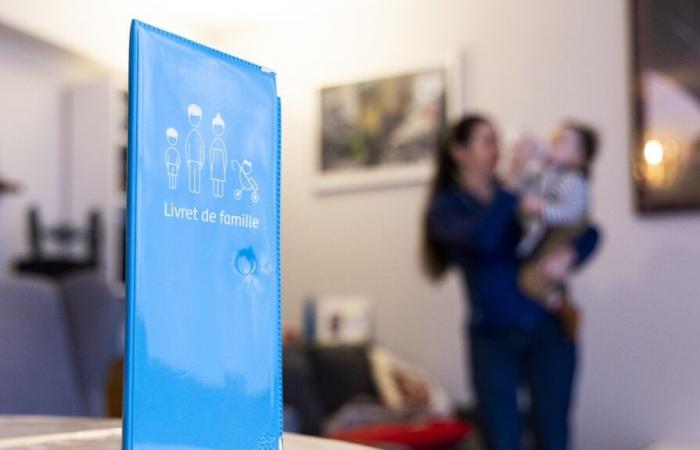This seems so logical to me that it wasn't even an option. The double last name, an uncompromising choice for Maya when declaring her son in the civil registry. A practice which tends to become widespread at town hall counters. In Touraine, several dozen readers explained this choice which they made for symbolic, administrative or legal reasons.
An option favored by Margaux, so that her son “know where it comes from”. It therefore bears the name of its companion followed by its own to “keep the little bit of tradition” with the father's name first. “Why should my name disappear just because I’m a woman?”she questions. I like this name, it has a history and I want to perpetuate it. »
“Why should my name disappear just because I’m a woman?” »
A story of symbols but also of practicality, since she is not married to the father of her son. Margaux will not have to “prove every time” that she is indeed his mother. Does she fear that the double name will be a constraint when learning to write at school? No way. “It’s a habit to get into” she explains.
More flexible on the issue, Céline considers it preferable that her daughter, born on May 30, use her father's name when learning to write: “She will do as she wishes. She can write both of her names or not. This doesn't pose the slightest problem to me. »
A choice of conviction
Initially, the young mother had not considered the option. “I hadn't asked myself that question, but her daddy felt she was as much his as mine, she says. He thought it was normal, it really moved me. » Only one of the testimonies collected anonymously reported difficulties in getting the spouse to accept the double name.
Most often, couples agree on the issue. Like Mathieu and his wife, who do not regret “in no case” this choice of belief. “French society must evolve and be more open to these new practices. We insist that both names be systematically mentioned. It’s not always easy, but we’re moving forward.”explains the father.
The couple also sees it as a nod to the Hispanic culture that they are so passionate about. A question of culture also for Myriam, a French woman of Algerian origin. “Origins, memory and the past are also experienced through a name, a first name, a memory beyond our DNA”she describes.
“I regret”
The legal aspect should not be neglected either, notes Nancy, whose children only take their father's name. She wanted to avoid complications for them at school. “After twelve years of relationship, their father unfortunately left with my ex-sister-in-law. Looking back, I regret not adding my name,” she concedes.
“Today, whenever I complete paperwork for school or other procedures, I have to use my maiden name, which is completely different from that of my children. It's very difficult to constantly have to justify that I am their mother, simply because we don't have the same name,” Nancy concludes.
20% of newborns affected
Indre-et-Loire has three maternity hospitals in Tours, Chambray-lès-Tours and Saint-Benoit-la-Forêt. Municipalities which are all seeing a significant change in the number of newborns who have a double surname. Around 20% of newborns will be affected in the department in 2024.
> In Tours, 520 children out of the 3,141 born in 2024 bear the name of their father and mother, i.e. 16.5%, compared to 13% in 2015 and 2% in 2004. This practice has no impact on the civil status service , specifies the City of Tours. On the other hand, a clause stipulates that it must be identical for all future children.
> In Chambray-lès-Tours, the double name concerns 18.7% of births out of the 1,706 in 2024. And 22% of the 1,865 births in 2023.
> In Saint-Benoit-la-Forêt, it represents 25% of births out of 490 in 2024. “A percentage that increases from year to year”indicate the services.






